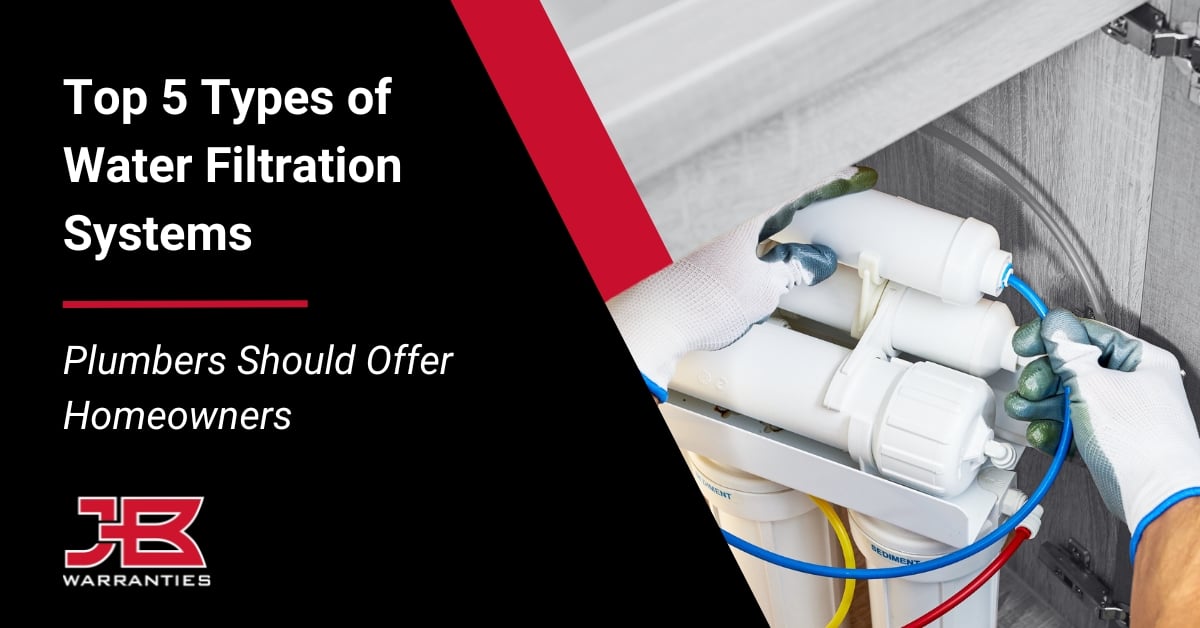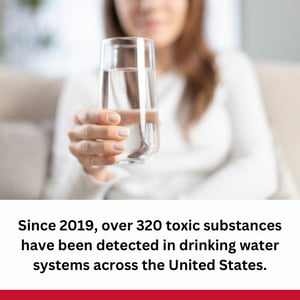
As a plumbing professional, nothing matters more to a profitable operation than the ability to meet consumer demands with a variety of service offerings. With consumers today specifically seeking health and wellness enhancements for their homes, water filtration services are a lucrative addition to your service offerings that help homeowners ensure their drinking water supply remains safe.
However, there are many types of water filtration systems on the market today that offer varying levels and methods of purification, making selecting a system quite difficult for customers and contractors alike. To help streamline your operations (and make customer selections easier), let’s take a look at the importance of a water filtration system and the top five types to offer customers.
The Importance of a Water Filtration System
 Did you know that since 2019, over 320 toxic substances have been detected in drinking water systems across the United States? Lead, chlorine, mercury, pesticides, and even prescription medication are some of the leading contaminants often detected in drinking water sources across the country. Not to mention that bacteria, viruses, and parasites have also been found in water supplies, making the concern of harmful drinking water a heavy worry for many homeowners.
Did you know that since 2019, over 320 toxic substances have been detected in drinking water systems across the United States? Lead, chlorine, mercury, pesticides, and even prescription medication are some of the leading contaminants often detected in drinking water sources across the country. Not to mention that bacteria, viruses, and parasites have also been found in water supplies, making the concern of harmful drinking water a heavy worry for many homeowners.
Whether a customer retains their tap water from a city supply or a driven well, it’s crucial to understand that drinking water contamination is a concern for all. Luckily, through various filtration systems, plumbers can provide customers peace of mind that their drinking water is safe for consumption and free of contaminants that can pose potential health risks.
Rising Demand for Drinking Water Filtration Systems
According to a Water Quality Association report, the volume of water softening and filtration products has increased by over 72% just in the past 10 years. From a higher demand for innovative solutions to a post-pandemic water filter market boom fueled by customer contamination concerns, there are many reasons why plumbers should consider offering these services to homeowners.
Through water filtration systems, your customers can gain higher protection against a variety of contaminants, including chemicals, viruses, and bacteria. In addition to the health protections, water filtration systems can also save customers significantly on their annual grocery costs by eliminating the need to buy bottled water or specialized water filter pitchers.
Top 5 Types of Water Filtration Systems
To understand which systems are right for your customers, it’s important to understand the various selections and their purification processes. Here are the top five water filtration systems readily available on the market to offer homeowners today.
1. Activated Carbon
As one of the more popular water filtration options, activated carbon water filters are great for removing a variety of contaminants, including chlorine, agricultural pesticides, and sediment. Activated carbon filters purify water as it passes through the system by pulling out toxins from the water supply using charred organic material with high carbon counts, such as wood and coal.
The organic material inside an activated carbon filter is highly porous, making it difficult for impurities to pass through but still allowing safe drinking water to exit. Due to the simplicity of this design, activated carbon filter systems are often some of the most cost-effective options and do not require electricity to function properly.
2. Reverse Osmosis
Reverse osmosis filters are some of the best solutions around for removing a large percentage of water contaminants, including but not limited to bacteria, fluoride, arsenic, nitrates, and salt. Reverse osmosis filters work by pushing water through a reverse osmosis membrane where the impurities will remain on the starting side of the membrane, and the pressure forces purified water to the other side.
Bear in mind that while these are some of the best options for removing the highest amounts of contaminants, the reverse osmosis process is slow and dispenses at low pressure. This makes reverse osmosis filtration systems a good selection for customers solely looking for a purified water tap but not a whole home filtration system for additional purposes, such as laundry and showering.
3. Activated Alumina
In regions with a high risk of fluoride and arsenic water contamination, activated alumina filtration systems are the way to go. Similar to activated carbon, an activated alumina filtration system is made of aluminum oxide, which is a very porous compound that’s excellent at drawing in harmful chemicals.
The interesting thing about activated alumina is that these impurities are not just held within the pores of the aluminum oxide but instead bond with the contaminants making the risk of contaminant leakage from the system far less of a concern. This feature makes activated alumina not only a great option for home use but also for an industrial scale within water treatment facilities.
4. Ion Exchange
For customers who source their household water supply from a driven well, their water often has high rates of calcium and magnesium, resulting in common “hard water” problems like mineral buildup in plumbing and appliances. Ion exchange filters work to address this concern by replacing those pesky hard water calcium and magnesium ions with sodium ions that help “soften” the water.
In addition to the typical hard water concerns, ion exchange filters are also helpful with removing radioactive material from water. However, a plumber must note that while these systems are awesome for water-softening purposes, these filters are not as effective at removing organic material, viruses, and bacteria when compared to other types of water filtration systems.
5. Ultra Violet Filters
Unlike ion exchange filters, ultraviolet (UV) filters are ideal for customers most worried about their household water supply being contaminated with bacteria and viruses. UV filters incorporate the use of ultraviolet light that negatively impacts the DNA of viruses and bacteria once in contact with the light, ultimately killing them.
In recent years, the popularity of UV water filtration systems has grown due to the preventive response to the COVID-19 pandemic. However, a plumber must inform customers that these filters are only capable of eliminating viruses and bacteria, and they will still require an additional filtration system, such as reverse osmosis if they wish to remove chemical contaminants.
Don't Forget to Equip Systems with a JB Warranties Premium Protection Plan
Beyond specialty services such as water filtration, it’s vital for plumbers to offer customers extended protection on their new plumbing equipment. At JB Warranties, our Premium Protection Plans offer plumbing contractors and their customers extended warranty coverage across all of the top plumbing brands, so homeowners’ drinkable water supply remains safe for years to come.
Contact us today to learn how JB Warranties’ industry-leading warranty services can elevate your plumbing offerings.

Kevin Thornton
VP & GM, Dealer Business Services Division






